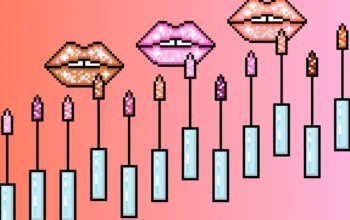If your friends have started throwing lavish, time-intensive birthday celebrations, here’s how to navigate.
The celebration was threefold: a dinner, a boozy art class, and a day party, held over the course of a weekend last October. Ashlee Kelly, 35, had committed to attending every festivity during the multi-day function, all in honor of a friend she’d known since high school. To get there, Kelly, a college and career coach, her husband, and their two young children caught a flight from Tampa Bay, where they live, to Maryland, to the hometown of the guest of honor.
The dinner, on a Saturday night, went off without incident. But by Sunday, after the four-hour paint-and-sip, Kelly was starting to have second thoughts about the party, scheduled to begin immediately after. She was exhausted from the long day of artistry and wine, and felt she’d spent enough time away from her husband and children. So Kelly decided not to complete the trifecta and bowed out of the final event. Kelly’s friend, the host, was not pleased.
“She just stopped talking to me,” Kelly says. The pair haven’t spoken since.
The weekend-long celebration in question was not commemorating a hugely significant milestone, such as upcoming nuptials or the birth of a child, but something far more mundane and universal: a birthday. That a nearly two-decade friendship crumbled over a missed birthday party — one she crossed state lines to attend — was painful, Kelly says. “I’m still mourning it,” she says, “because it’s honestly like you’re grieving.”
Kelly has grown accustomed to big asks from her friends on their birthdays. This spring, one pal suggested for her special day flying to Las Vegas to see Usher perform, a trip that Kelly says would’ve cost her thousands. Another friend recently hosted a dinner party at a restaurant, followed by a no-kids-allowed bash on the beach a few days later. “She has two sons, so it’s not like she doesn’t have kids,” Kelly says. She estimates she attends five to six blowout birthday parties a year.
While Kelly tries her best to accommodate her friends’ wishes on their birthdays, she is often put in a tough position, having to choose between her family and her companions. For the invitations she does decline, some friends see it as a personal rebuff.
Depending on who you talk to, birthdays rank as one of the most significant days of the year. Who better to spend it with than your closest confidantes? A YouGov poll of 1,000 Americans showed that 72 percent spend at least some of their birthdays with friends.
Among certain circles, however, birthday parties have ballooned beyond the standard dinner and cake. While lavish birthday celebrations give single and child-free adults an opportunity to bask in the spotlight for a day (or week) similar to the effect of weddings and baby showers, throwing yearly massive events can strain a relationship. Fêtes can now encompass weekend trips, expensive experiences — think multi-course meals, excursions, and concerts — or multiple events over many days. TikToker Sabrina Brier pithily parodied the “birthday weekend” archetype in a recent clip: “This weekend it’s Katie’s birthday weekend, so we have a lot of birthday plans she’s lined up,” she tells an off-camera friend. “So I’m going to be kind of out of commission.” In the Unpopular Opinion subreddit, a lively debate ensued on a 2020 thread titled “Your birthday is a DAY, not a weekend, not a week.” “Omg yes,” one Redditor wrote. “My bf’s stupid ass friend has a birthday week and demands gifts everyday. 1st day: a gift from her past that she used to like 2nd day: a gift for the future 3rd day: something random 4: food 5: idk 6: idk 7th: her actual birthday and more gifts from family.”
These lavish affairs are even causing some to go into debt. According to a recent Credit Karma report, 36 percent of Gen Z and millennials said they have a friend who drives them to overspend; of those, 15 percent of Gen Z, 21 percent of millennials, and 29 percent of Gen X respondents cite birthday celebrations as the reason for their spendthrift behavior, according to additional unpublished Credit Karma data shared with Vox. Birthdays that start to look more like bachelorette parties can be off-putting for those accustomed to more modest celebrations or for those whose budgets can’t accommodate high-priced affairs. Hosts may misread their friends’ lack of enthusiasm or funds as rejection, potentially causing a rift in the relationship.
A confluence of factors has contributed to the birthday scope creep, experts say. Pandemic lockdowns and foregone birthday celebrations created a demand for parties. The years surrounding a 21st birthday are crucial years for friendships, says Grace Vieth, a PhD student at the Social Interaction Lab at the University of Minnesota. Being isolated from friends during your early 20s — years meant for bonding and adventuring with peers — can exacerbate the feeling that you need to play catch-up. “People are seeking those experiences that they had, or that they wanted to have, in their early 20s, but now it’s really hard for people to do that because they’re investing in their jobs, in their career, in their romantic partnerships. Maybe they’re even having kids,” Vieth says.
Social media, notably TikTok and Instagram, can create the false narrative that everyone you know is having a blowout bash. Celebrators may also hold the belief that they aren’t sufficiently loved unless they are being celebrated in a visible way. As Americans rethink traditional milestones — like delaying or forgoing marriage and having children — perhaps birthdays can fulfill the need for a memorable celebration.
How we celebrate birthdays
Birthday parties are a relatively recent phenomenon. While some ancient cultures such as the Greeks, Persians, and Egyptians marked the anniversary of birth, only high-ranking adult men were awarded such an honor. By the end of the 18th century, upper-class families in North America and Western Europe began more regularly celebrating children’s birthdays, but these events took place in the home and were centered around family.
The democratization of birthdays arrived in the early 20th century when everyone, regardless of age, gender, and social class, partook in the tradition of blowing out candles on the cake as a means of “understanding the individual existence as worth celebrating.” For children, birthday parties were seen as part of a normal and happy childhood. In the 1980s, birthday parties went through a commercial transformation: No longer hosted primarily at home, celebrations were held at venues like fast food restaurants, museums, bowling alleys, arcades, and other recreation centers.
As these children of the 1980s — and beyond — aged into adulthood, the love affair with birthday parties remained. Over half of Americans say they attended at least one birthday party in the last year, according to a YouGov poll, and 84 percent of people say they like or love the event — more than any other type of special occasion (such as a wedding or housewarming party).
The impending anniversary of your birth provides ample opportunity to reflect on your life and the people in it. Birthdays, according to one academic paper, strengthen one’s sense of belonging and importance: “[T]he birthday ceremony allows the celebrant to absorb positive impressions about himself.” When a friend fails to recognize your birthday, you may begin to question whether they’re a true friend after all. “I would argue that this is a day when, compared to all other days, you are looking for some demonstration that [friends] support you,” says friendship coach Danielle Bayard Jackson.
While Jackson’s coaching clients may not initially seek her out with specific birthday-related conundrums in mind, very often the roots of their conflicts trace back to a slight or disappointment that transpired during a birthday. The tension around birthday expectations arises frequently enough that Jackson dedicated an episode of her podcast to the phenomenon. “Some of this is tied to the idea that a true marker of friendship is you shouldn’t have to say what you need” on your birthday, Jackson says. “That’s very romantic, but you’re never going to get to a point of closeness where it transcends the need to communicate.”
The lofty expectations surrounding birthdays
Kenneth Miller has admittedly always set high expectations for his birthday, but “something always happens,” he says. On his 19th birthday, for instance, he planned a massive house party, but in an effort to not invite a certain acquaintance, Miller lied and said he wanted a low-key celebration. The acquaintance “turned around and told everybody else that I just wanted to keep it small, so nobody came,” Miller says.
This year, for his 21st birthday, Miller, a student, spent months planning a weekend road trip from his hometown of Phoenix to San Diego with three friends he’s known since middle school. Not only did Miller struggle to get his friends to commit to the trip, once the group arrived, Miller says, his friends slept in late, claimed food prices were too expensive, and seemed disinterested while at bars. While Miller acknowledges these friends are fairly introverted and don’t celebrate their own birthdays, he wanted to honor the milestone year with the people he knows best. “I think it really just came down to we had different priorities,” Miller says.
Potential conflict arises when reality doesn’t align with expectations. Written into the social contract of any friendship are a number of expectations, according to Jeffrey Hall, a professor of communication studies and the director of the Relationships and Technology Lab at the University of Kansas. Hall has narrowed the expectations of an ideal friendship down to six buckets, ranging from similarity with the other person to enjoying their company. Where does acknowledging a birthday fall within these defined assumptions of friendship? “It doesn’t,” Hall says. Conflict in friendship arises when two people have differing ideas on what it is to be a friend, Hall explains. In this gray area, tensions brew, say, if the birthday honoree expects their best friend to throw them a surprise party but the BFF considers a thoughtful text message sufficient acknowledgment.
Social media influences how we celebrate and want to be celebrated
If people aren’t clearly sharing their birthday expectations with their friends, they might be letting these expectations get shaped by social media. When social feeds are populated with images and videos of birthday vacations and ornate balloon backdrops, people begin to take these over-the-top gestures as commonplace. Just as social media comparison fueled the excesses of the wedding industry, a similar normalization of grandeur is transforming birthdays. “There’s an amount of consumerism that’s a part of this,” says therapist Shade Adekunle. “This desire of ‘I have to do it bigger and better than other people.’”
Tori D’Amico thought organizing a picnic for her 22nd birthday would be simple to execute, but the two days she spent baking a bright pink cake proved otherwise. The inspiration for the picnic came from TikTok, where the Philadelphia-based writer saw clips of other women with picturesque spreads. “It was all because I wanted to have something that felt special,” D’Amico, now 23, says, “because it looked like it felt special for other people.”
Rather than let online trends dictate the nature of a celebration, Jackson suggests removing outside influence altogether. “If you weren’t allowed to take pictures of your birthday gathering, what would you do?” she says. The pomp and circumstance of an event — and how that event is portrayed online — can overshadow the celebrant’s true intentions: to honor life and relationships.
The wedding-ification of birthdays
As priorities shift and companions see each other less frequently, the more birthday parties are used as an excuse for friends to get together. However, when these celebrations begin to have the time and financial obligation typically associated with weddings or bachelorette parties, attendees need to prioritize certain events over others. Savannah, Georgia-based Aysia Woods has reached an age where many of her peers are simultaneously celebrating 30th birthdays, engagements, and marriages. “There’s so much to pay for,” says the 30-year-old entrepreneur and graduate student, “and it’s a bummer because I want to say yes to everybody’s wedding, everybody’s bachelorette, and everybody’s birthday, but it’s just like, I can’t afford it.” When weighing what events to attend, Woods considers how close she is with the host and whether she can show her support in other ways to the invites she declines. Due to academic and financial obligations, Woods turned down an invite to Miami for a friend’s 30th birthday but helped the host plan the event by curating a list of hotel and Airbnb options.
Considering the abundance of events afforded to coupled adults and parents — bridal and baby showers, bachelor and bachelorette parties, weddings, housewarming parties — some people may see celebrating their birthday as settling the score. “I have certainly had conversations with women who are single and child-free who speak to feeling a certain disappointment because they feel that there’s a lack of reciprocity in how they’re celebrated,” Jackson says. “Feeling like, I have to show up in all these ways because these milestones have more of a cultural reference than the milestones I’m experiencing in my life.”
Woods even attended a birthday that had the aesthetics of a wedding. A family friend’s 43rd birthday was held in a banquet hall, complete with a DJ and catering. “I just couldn’t figure out why are we doing this for a 43rd?” she says. “I’m so conflicted. Because I’m like, you made it to another year. That’s always a reason to celebrate.”
Surviving another revolution around the sun is significant enough for many to honor their birth. “I really disliked myself for a really long time,” says Kenneth Miller, the student in Phoenix who was disappointed by his friends’ lax attitudes during his birthday trip. Now that he’s more at home in his skin and empowered to ask for what he wants on his birthday, Miller wants the moments he celebrates himself to live up to his expectations.
“Now that I’m at a spot where I’m more comfortable with that,” he says, “it makes me want to do even more because I didn’t have the chance to do it at all growing up.”



